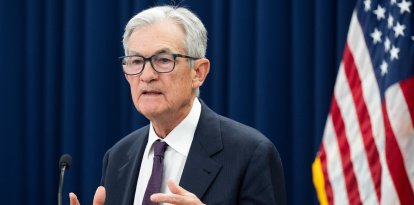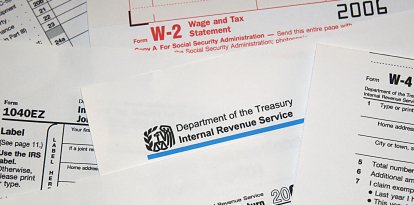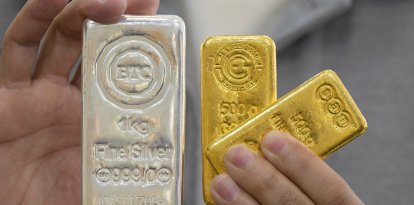How rising interest rates affect you
A mortgage can be dangerous for a family economy.

Jongorey (Flickr)
Two out of three Americans say inflation is eating away at their savings. As prices get higher, each dollar is worth less. Here everyone loses, but according to a report prepared by Penn Wharton, inflation affects middle and low incomes more than high incomes.
It is necessary to stop inflation, but the measures needed to do so may also affect the household economy. On June 15, the Federal Reserve raised interest rates by three-quarters of a point, 0.75%, to a range of 1.5-1.75%. This is the largest increase in a single decision since 1994. And it won't stop there. We are in the middle of a hiking phase: in March, the Fed raised rates by 0.25 points, and in May by another 0.50 points.
Federal Reserve Governor Jerome Powell has stated, "We are firmly committed to returning inflation to its 2% target." And inflation reached 8.6% in May, the highest rate in 41 years.
Household economy
So the question is now this: how do rising rates affect a family's economy? The most direct effect is on housing. Higher rates mean that services that are more distant from the present are valued less highly. This affects durable goods, such as homes, which will be worth less with higher rates.

On the other hand, financing them will be much more expensive. Many homeowners, who are in the early years of the path to full ownership, will find that paying their mortgage will become increasingly expensive. And for many families, this pincer (more expensive mortgages on homes that are worth less) will lead them to ruin.
The same can be said for cars. Buying them on credit will be more expensive. Personal and credit card debts will be more difficult to pay.
Those who have to pay for the credit with which they have paid for their studies will also be concerned. Inflation is paying for part of these credits, but rising interest rates can make them more expensive, and if successful, inflation will eventually be reduced.
National economy
Inflation creates a false sense of prosperity. Cutting it off means recognizing reality and halting some of the investments that looked good when interest rates were high. High rates lead to lower demand. This is why they help to control inflation, because they reduce demand. The production and employment data do not suggest a recession, but the rate hike does.
Economic models created by Bloomberg point to a 72% risk of recession in 2024, the year of the presidential election. JPMorgan Chase chief economist Jamie Dimon has told the Wall Street Journal, "It's going to be very difficult to avoid some form of recession."
Inflation makes cryptocurrencies more attractive, as they have demonstrated the ability to function as a store of value. But higher interest rates make other safe-haven assets more interesting. Bonds rent an interest. Meanwhile, the ups and downs of cryptocurrency prices can catch savers off guard.























